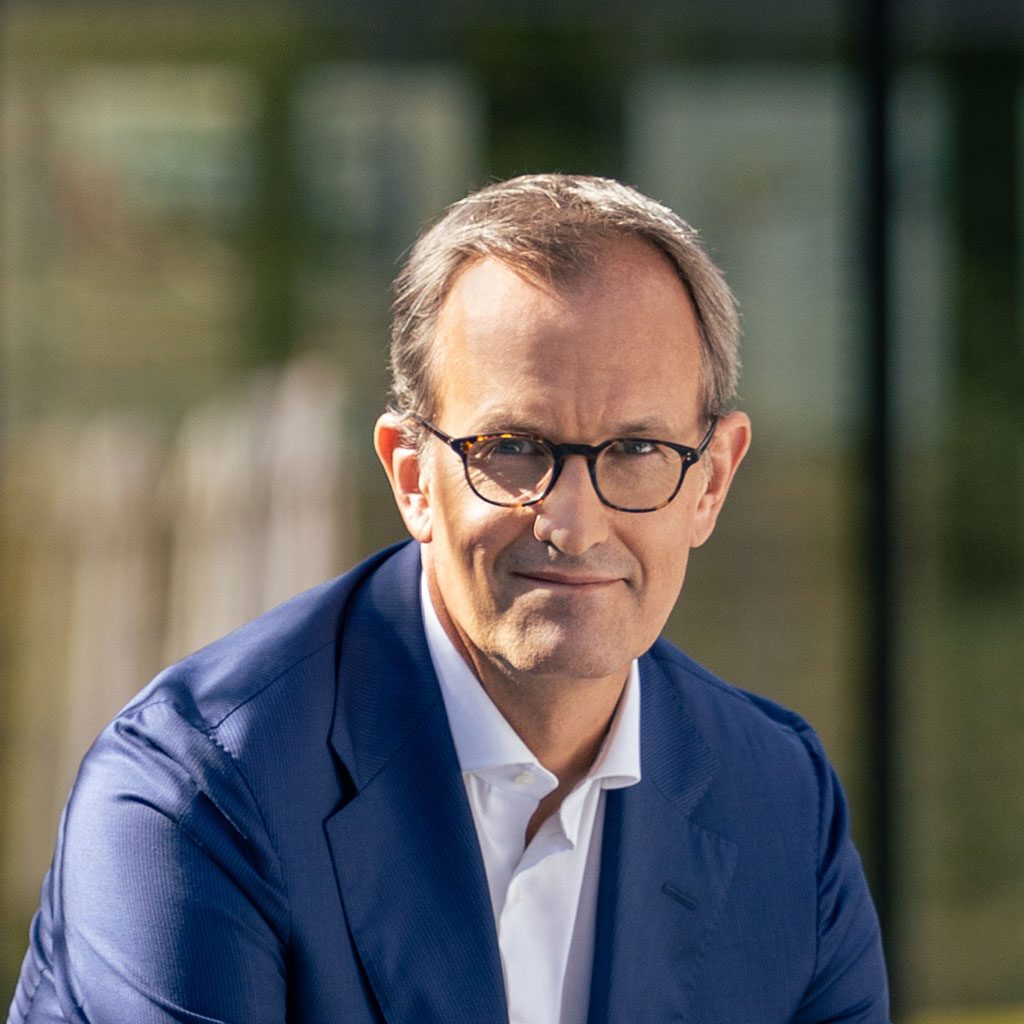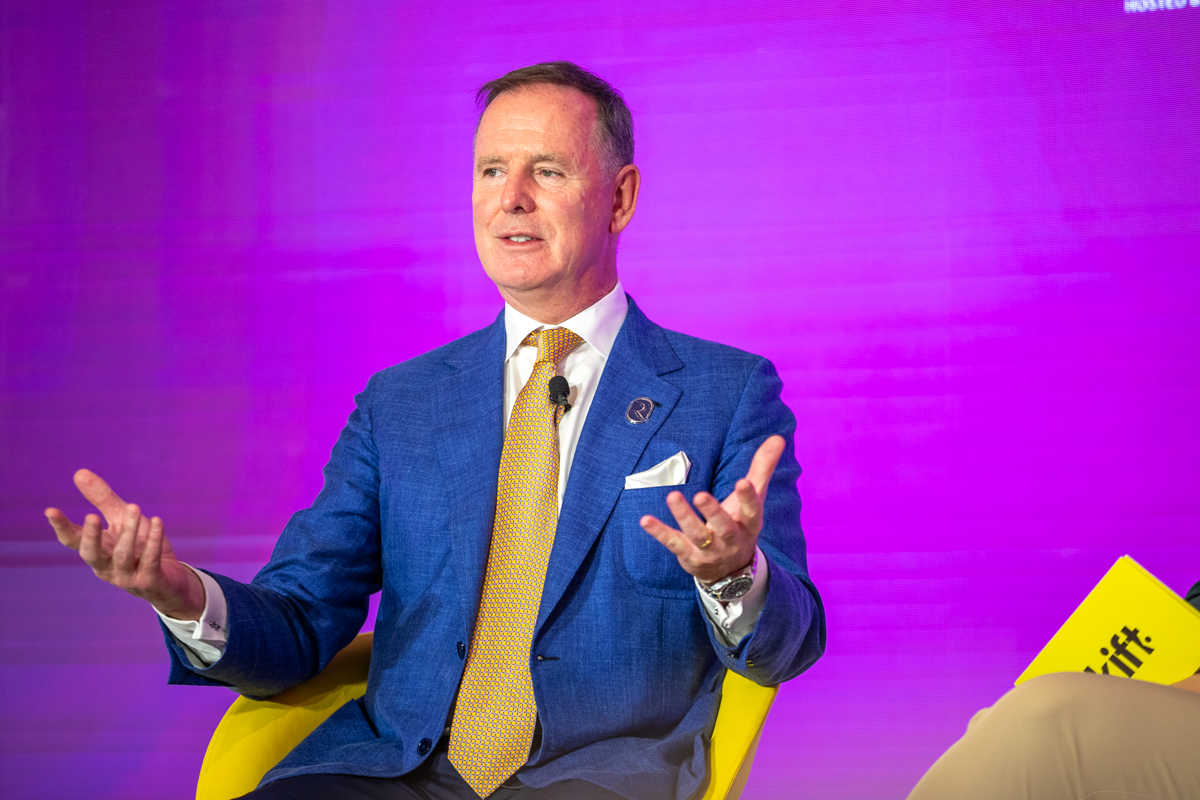Q&A: How to Cultivate Human-Centric Innovation in Hospitality

Skift Take
This sponsored content was created in collaboration with a Skift partner.
From contactless check-in and payments to tools that employ artificial intelligence (AI) to address guest needs, technology has played an important role in helping the hospitality industry get back on track.
But there’s a limit to technology’s ability to replace human interaction, which is still critical to maintaining an authentic connection with guests. For example, while AI chatbots can answer guest queries, schedule wake-up calls, and reserve dinner tables — enabling measurable performance gains — they can’t exhibit empathy, carry on meaningful conversations, or display the interpersonal warmth and affection that has traditionally been intrinsic to the hospitality experience.
The idea of building profitability around guest- or customer-centricity has long been a strategic goal in hospitality, but today’s unique challenges require a broader lens on human-centricity — which includes a hotel’s employees, partners, and other stakeholders.
To understand the role of human-centric innovation in hospitality, SkiftX spoke with Markus Venzin, CEO of EHL Group, which encompasses EHL Hospitality Business School, a hospitality management school with campuses in Switzerland and Singapore. Internationally known since 1893 for its expertise in hospitality management education, EHL Group also provides consultancy and innovative solutions for companies, education institutions, and governments.
SkiftX: What does it mean for the hospitality industry to become more human-centric?
Markus Venzin: The notion of hospitality implies extending a welcome to guests and offering an exceptional, personalized experience. With that in mind, hospitality operations have always been human-centric.

One of today’s key challenges is that digitalization and technology can get in the way of developing the human touch. But it is up to us as hospitality leaders to define the right balance adapted to our specific business and environment. Where digital transformation will enable performance gains via AI, virtual reality, and unparalleled speed, humans will hold their ground with social interactions and soft skills like empathy and creativity.
SkiftX: To your point, technology plays an important role in improving productivity, reducing friction, and making guest interactions more seamless. How can hospitality leaders strike the right balance between technology solutions and the human touch?
Venzin: I don't think we’ve found the perfect recipe yet, but to remain competitive, hospitality brands need to better segment clients according to their needs and preferences. Everyone’s needs are different. Some of those needs can be met with digital touchpoints while others strongly require a human touch. Leveraging customer data to initiate customized offerings and personalization is key to success — even before the guests arrive. Some people will be entirely satisfied with quick contactless check-in and mobile room keys, while others will appreciate interacting with hotel staff members at the front desk.
SkiftX: Everyone is talking about ChatGPT right now. What are the opportunities and limitations of artificial intelligence in hospitality?
Venzin: Artificial intelligence is a major buzzword, but few hoteliers actually know what it can do for their business. We need to make conscious decisions about where AI can help improve hotel operations, not just the customer experience.
Beyond chatbots or digital concierge offerings that can address common queries related to the customer experience, a host of behind-the-scenes AI applications are helping hoteliers improve operations. One of the first practices that benefited from machine learning was revenue management, which enabled more accurate pricing strategies. Dynamic pricing policies have now become a must for many hoteliers.
Another AI application that is probably less known by hoteliers is around boosting energy efficiency. By analyzing energy consumption data, AI can suggest ways to reduce costs. In a similar way, the startup KITRO uses AI to quantify and analyze food waste in professional kitchens.
SkiftX: Labor shortages continue to plague the industry. What are the most effective human-centric ways hospitality leaders can not only attract but retain people in hospitality?
Venzin: To a large extent, there is no labor shortage. The problem is that there’s not enough profitability within the operation or willingness among the leaders to invest in people. At EHL, we strongly believe in lifelong learning, and we are currently developing a new program to upskill and reskill people from other industries — even from other geographies — and insert them into the Swiss hospitality industry.
They choose an area of focus, such as kitchen operations, housekeeping, or reception, and then after several weeks of classes, they get a contract with a Swiss hotel operator. This proposition is very attractive to people entering the industry, but so far only a few hotel operators are willing to invest in training. We are just in the launch phase of the project, however, so we still have time to convince them.
If hotels are having trouble attracting talent, they may need to offer more flexible hours, provide an option for remote working, or provide a clearer career path. And they should not shy away from getting to the heart of the matter: better salaries and benefits adapted to different life stages.
Last but not least, the staffing structure in most hotels is still very much hierarchical, but that doesn’t appeal to the younger generation. They don’t want to engage with a manager that’s constantly saying, “I’m the boss. Do what I say.” One of our professors, Dr. Stefano Borzillo, has written extensively on this topic, as well as conducted research on the labor shortage and the solutions we can provide to the industry.
SkiftX: You’ve spent most of your career as an expert on growth strategies with a focus on innovation and corporate entrepreneurship. How did your background prepare you for your current role in the hospitality sector?
Venzin: The first case study I ever wrote was about innovation in St. Moritz, a luxury alpine resort in Switzerland known for having an incredible list of innovations: The first electric light in Switzerland at the Kulm Hotel, the first luxury resort in the Alps to welcome guests in winter, the first place to host the Winter Olympic Games twice, and so on. Looking at that specific community, I learned a lot about what you can and can’t control when it comes to leading with innovation.
Prior to my role at EHL, I advised large corporations to build start-ups through a venture builder and helped introduce the topic of innovation at Bocconi University in Milan, where I served as dean of innovation for several years.
The precondition for driving innovation is making sure everyone understands that innovation leads to higher profitability. Unfortunately, many entrepreneurs and managers in the traditional hospitality industry don’t see this link because they’re too focused on overall costs and short-term results.
Good ideas lead to innovations and profitability. Once a firm has that general awareness, the next challenge is to actually develop the innovations, either by adopting another firm’s ideas or by creating an internal system for employees to identify new ideas, nurture them, and let them develop. Incentivizing people to take risks helps.
SkiftX: What is your overall vision for EHL Group, and what is the ultimate mark you want to make on the organization?
Venzin: Our profound ambition is to provide our students with a unique, innovative, and caring educational ecosystem that bridges academia and industry practice, enabling them to acquire the right hospitality competencies and further thrive as human-centered leaders, and not just in the hotel industry.
For almost 130 years now, the entire EHL community — teachers, researchers, consultants, interns, and alumni — has served the hospitality industry and shaped its contours. Today, our graduates are highly valued in other industries like luxury retail, real estate, consulting, and private banking, especially because of this unique hospitality heritage and the soft skills they acquire throughout our experiential education.
This evolution explains our new identity, from Ecole hôtelière de Lausanne to EHL Hospitality Business School. The fact that our scope has expanded shows that a diverse array of industries are seeking the human-centered expertise that hospitality provides. In the years to come, we will continue to place emphasis on human interactions, which are key to having a positive impact in an increasingly digital and fast-changing world.
To download EHL Group’s latest insights around driving sustainable growth and innovation in the hospitality industry, click here.
This content was created collaboratively by EHL Group and Skift’s branded content studio, SkiftX.





